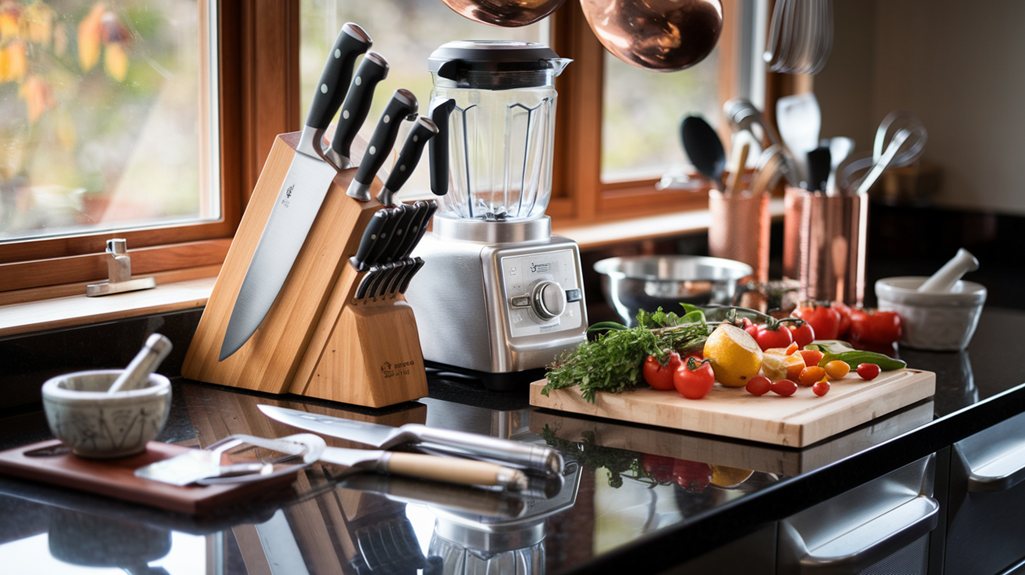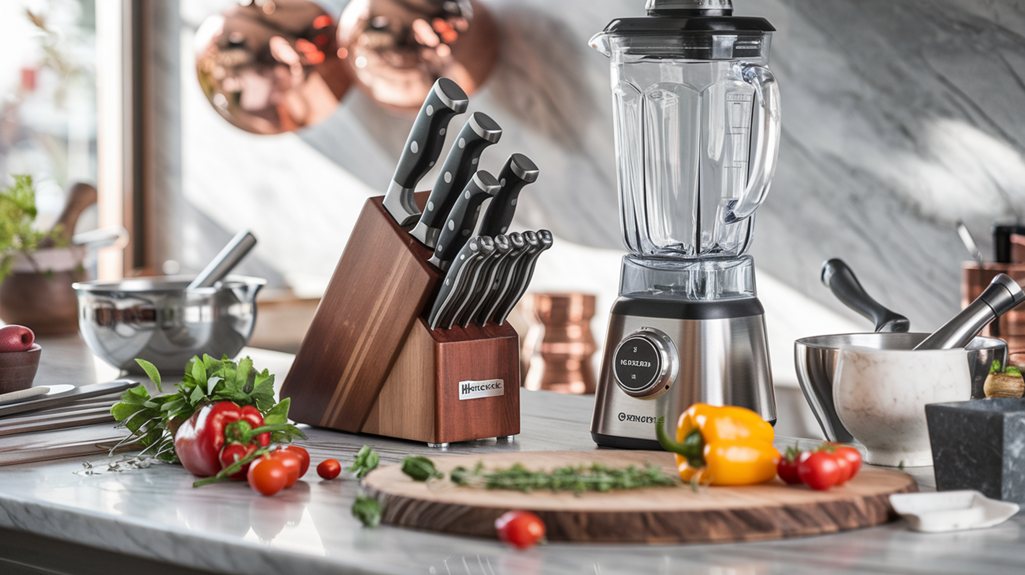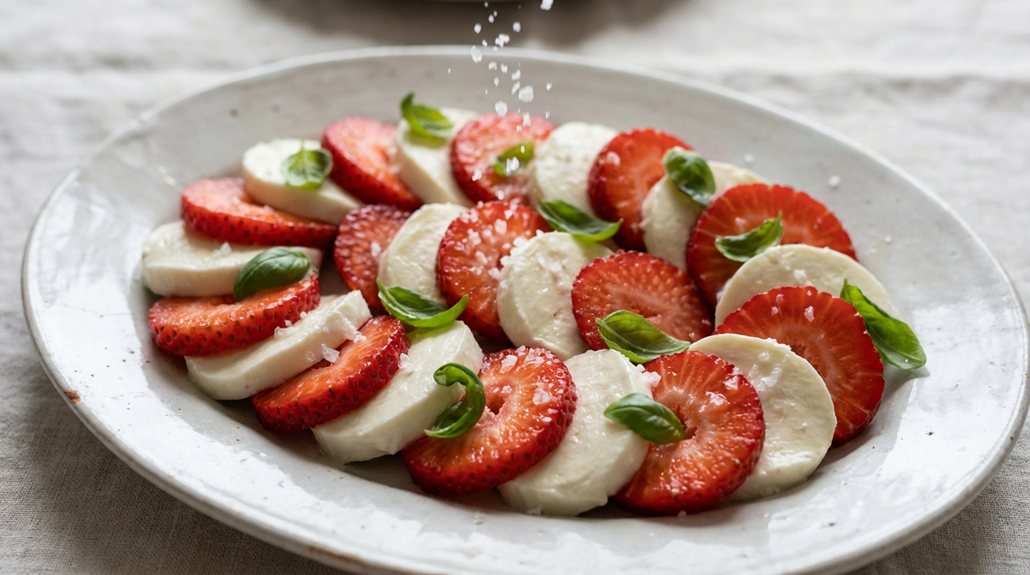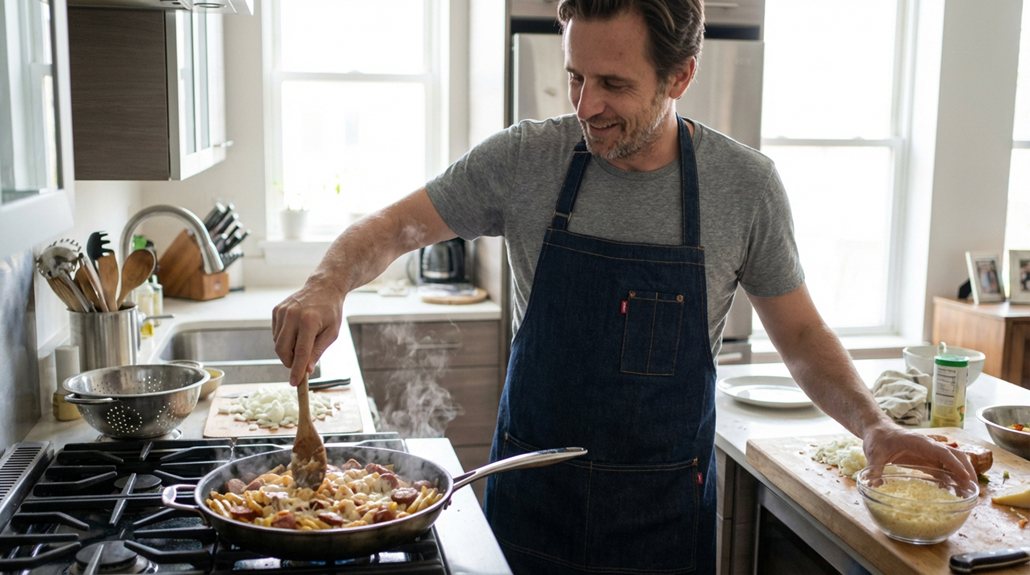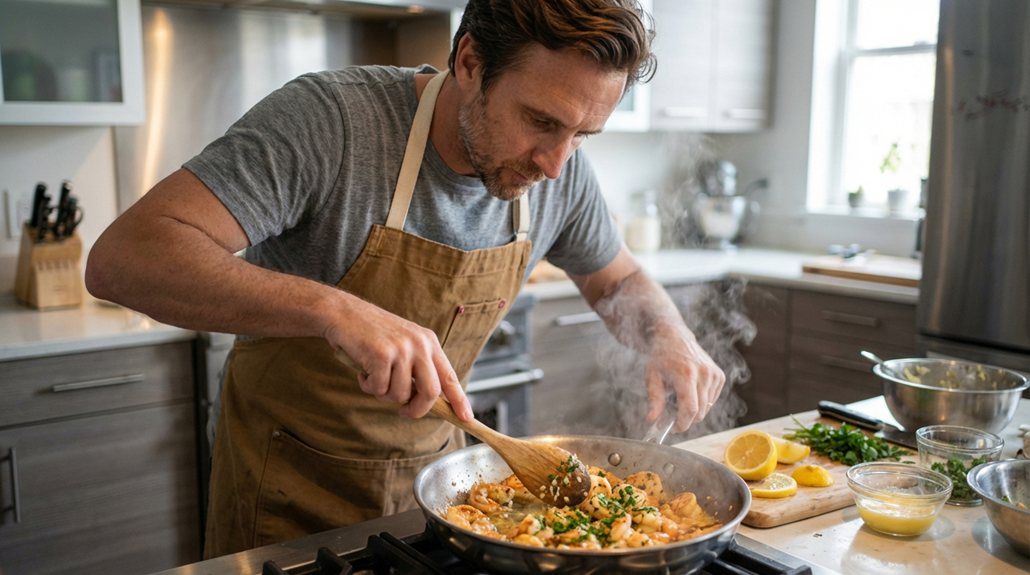You'll find professional chefs relying on five crucial Japanese knife types in their kitchens. The versatile gyuto serves as an all-purpose workhorse, while the efficient santoku excels at prep work. For precision cuts, there's the yanagiba for sashimi, the powerful deba for fish butchering, and the specialized usuba for vegetables. These high-carbon steel blades, rated 55-62 on the Rockwell scale, offer exceptional sharpness that'll transform your cooking experience. Let's investigate what makes each knife unique.
Key Notes
- Professional chefs primarily use the Gyuto as their all-purpose knife for versatile cutting and chopping tasks in busy kitchens.
- The Yanagiba knife is essential for sushi chefs, offering precision slicing capabilities especially for raw fish preparation.
- Deba knives are preferred by fish specialists for their superior ability to handle bone cutting and precise filleting work.
- Professional kitchens favor high-carbon steel blades rated 55-62 on the Rockwell scale for excellent edge retention.
- Santoku knives are chosen for efficient prep work, offering a shorter blade length ideal for vegetables, meat, and fish.
Popular Japanese Knife Types in Professional Kitchens
While Western kitchens often rely on a single chef's knife, Japanese professional kitchens adopt a diverse set of specialized blades that excel at specific tasks.
You'll find the versatile Gyuto leading the pack in professional settings, perfect for all-purpose cutting and chopping. The shorter Santoku brings efficiency to your prep work, while the precision-focused Yanagiba lets you create those gorgeous sashimi slices you've admired. Shun Cutlery's Classic series exemplifies the exceptional craftsmanship preferred by professional chefs.
For serious fish prep, you can't beat a Deba – it'll make quick work of bones and filleting. Want to enhance your vegetable game? The Usuba's straight blade delivers those precise cuts that make Japanese cuisine so visually stunning!
Each knife type in a Japanese kitchen serves its unique purpose, helping professional chefs create their culinary masterpieces. Unlike Western counterparts, these lightweight Japanese blades allow for more delicate trimming and intricate slicing techniques.
Essential Features of Professional-Grade Japanese Knives
When you're investing in professional-grade Japanese knives, the blade's construction stands front and center in determining quality and performance. You'll find high-carbon steel blades rated between 55-62 on the Rockwell scale, delivering exceptional sharpness and edge retention that professional chefs demand.
The magic doesn't stop at the blade, though! Single-bevel designs give you precise control for those picture-perfect sushi cuts, while ergonomic handles made from materials like Pakkawood keep your grip comfortable during long prep sessions.
You'll appreciate how the carefully balanced weight distribution makes these knives feel like a natural extension of your hand. Just remember, maintaining these beauties requires commitment – regular honing and proper care will keep your high-carbon blade performing at its peak and rust-free.
Unlike German style knives, Japanese knives prioritize razor-sharp precision over durability and toughness.
